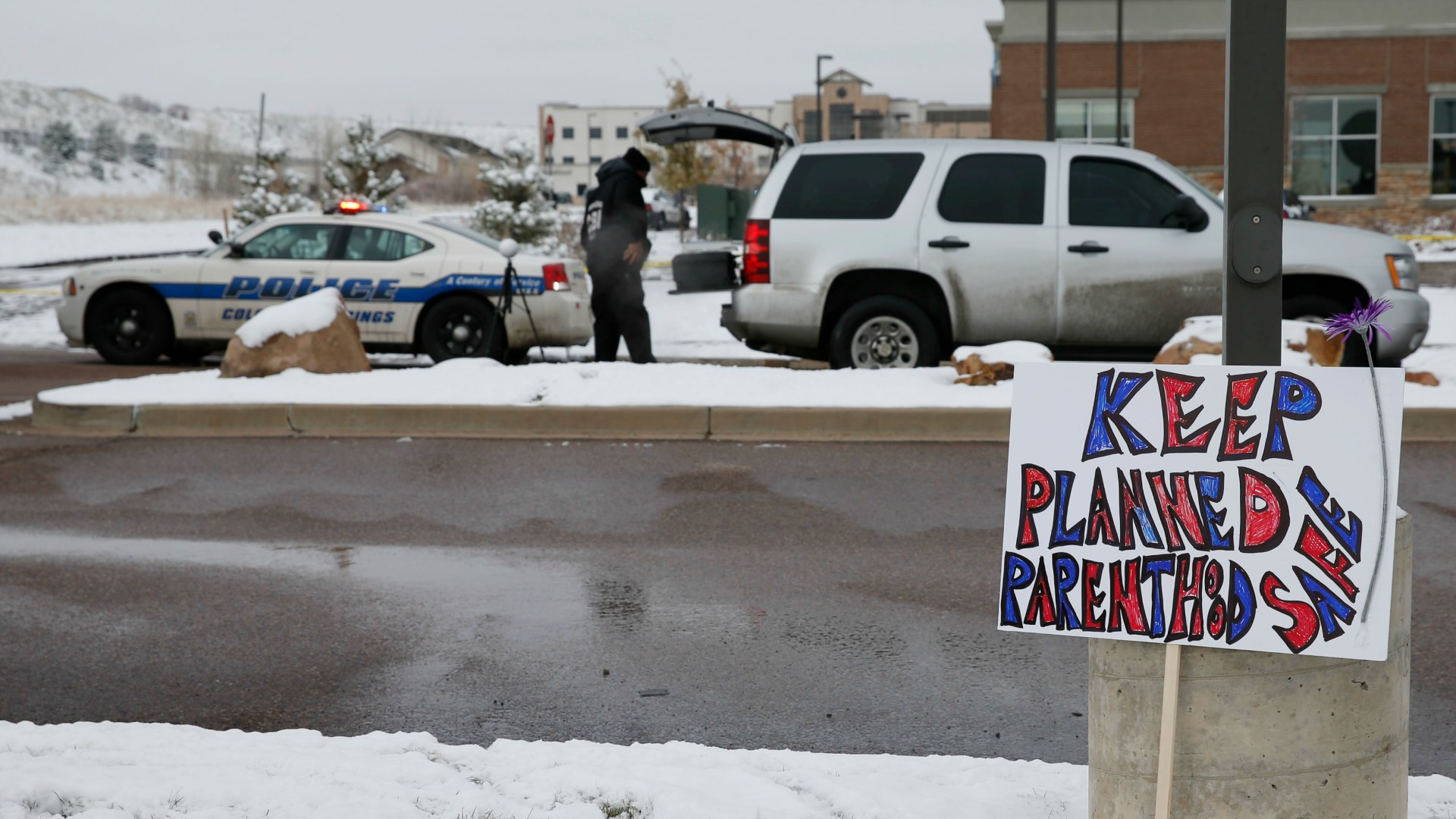Last Friday, a drifter named Robert Lewis Dear killed three people during a shooting spree in a Colorado Springs Planned Parenthood facility. We still don’t know whether Dear’s attacks were fueled by opposition to abortion (or anything beyond being “mentally disturbed” as he is described in one news story), but unidentified sources told NBC News his rants to police included the phrase, “no more baby parts,” taken as a reference to the undercover video exposé of Planned Parenthood’s fetal tissue sales.
Regardless of Dear’s motive, his actions were evil on every count, particularly from a pro-life perspective. The sanctity of human life applies to all people, from abortion providers to unborn children. Yet, some activists and politicians are blaming the language of opposition to abortion—which has a long history—for this recent act of violence.
Colorado governor John Hickenlooper said the shooting might have been caused by “inflammatory rhetoric we see on all levels.” He called for those debating abortion to “tone down the rhetoric.” The CEO of Planned Parenthood in the Rocky Mountains claimed that “extremists are creating a poisonous environment that feeds domestic terrorism in this country.” From opposite sides of the political spectrum, presidential candidates Ben Carson and Bernie Sanders cast some blame for the shooting on “bitter rhetoric” and “hateful speech,” respectively.
It would be easy to dismiss such charges—words are not deeds, after all. But in fact no one more than Christians should recognize the power of words to bring good or ill: “The tongue has the power of life and death, and those who love it will eat its fruit” (Prov. 18:21). An earlier passage in Proverbs tells us, “The words of the reckless pierce like swords, but the tongue of the wise brings healing” (Prov. 12:18). Calling abortion what it is will bring good. Doing so without the temperance of love will bring harm.
Rallying for the defunding of Planned Parenthood isn’t inflammatory rhetoric; it’s political engagement. Videos depicting the self-damning words and actions of Planned Parenthood officials isn’t yellow journalism; it’s investigative reporting. On the other hand, referring to abortion providers as “abortion ghouls,” clinic volunteers and workers as “deathscorts” or “bloodworkers,” and women who obtain abortions as “murderers” is worse than inflammatory: it is unchristlike. Calling legal abortion “murder” when it isn’t (it is, to our shame, lawful) is to say what isn’t true, at least in a civil (not church) context.
(To clarify: I am unwavering in my belief that according to God’s law, abortion is murder, despite its current definition in civil law, and in my belief that God hates the shedding of innocent blood. Having volunteered 17 years at crisis pregnancy centers and offering help to women outside abortion clinics for 10 years, I was trained not to use the word “murder” in trying to persuade them to choose life. I continue to believe this is wise counsel. I continue to work toward the day when our civil laws on abortion accord with God’s law.)
The purpose of language, its God-given raison-d’être, is to reveal truth, eternal and unfailing. It needs not the props of exaggeration or distortion of our feeble words. The truth about abortion demands no inflammation or embellishment. It is, rather, the purveyors of abortion who must veil the truth with charms. The hurt abortion causes to women and children and society can be communicated in plain terms.
For those who deny the reality of abortion, however, even the plain truth inflames. Thus we cannot ascribe to inflammatory language alone attacks against abortion clinics. (In fact, the violence perpetrated against abortion providers peaked, according to figures in a report by NARAL Pro-Choice America, in the 1990s, before social media. It’s entirely possible that the outlet social media provides for communicating dissent has helped lessen clinic violence.) Nor can we apologize for speaking the plain truth in love. Indeed, there is no love absent truth.
Still, human language has its limits. Humanity’s brokenness is mirrored in the imperfection of our words, so often inept, ill-chosen, or misunderstood. “Human speech,” writes Gustave Flaubert, “is like a cracked pot on which we beat out rhythms for bears to dance to when we are striving to make music that will wring tears from the stars.” Especially in situations as consequential as a pregnancy formed in crisis, a child to clothe and feed and love, it’s important to get our words (as well as our actions) as right as we possibly can. When human lives are at stake, our language must reach not the bears but the heavens.
As we affirm the truth that abortion ends a precious human life, we cannot do or support wrong—wrong words or wrong deeds—to achieve right. We are to pursue God’s good in God’s way: “There is a way that seems right to a man, but its end is the way of death” (Prov. 14:12). This is our duty both to God and to our society. Not as Bernie Sanders said, because of the “unintended consequences” of such language, but because Scripture teaches that temperate words are good in and of themselves:
The hearts of the wise make their mouths prudent, and their lips promote instruction. Gracious words are a honeycomb, sweet to the soul and healing to the bones (Prov. 16:23–24).
If we are characterized by such language—and deeds that match it—we need not strain to distance ourselves from the Robert Lewis Dears of the world in a posture of defensiveness. And when our enemies malign us anyway, we will find ourselves already poised to love them in return. Christians have the power, through the perfect Word and our imperfect but careful words, to bring healing rather than harm.
Editor's note: A parenthetical clarification around the use of the term “murder” was added to this post Tuesday evening.









